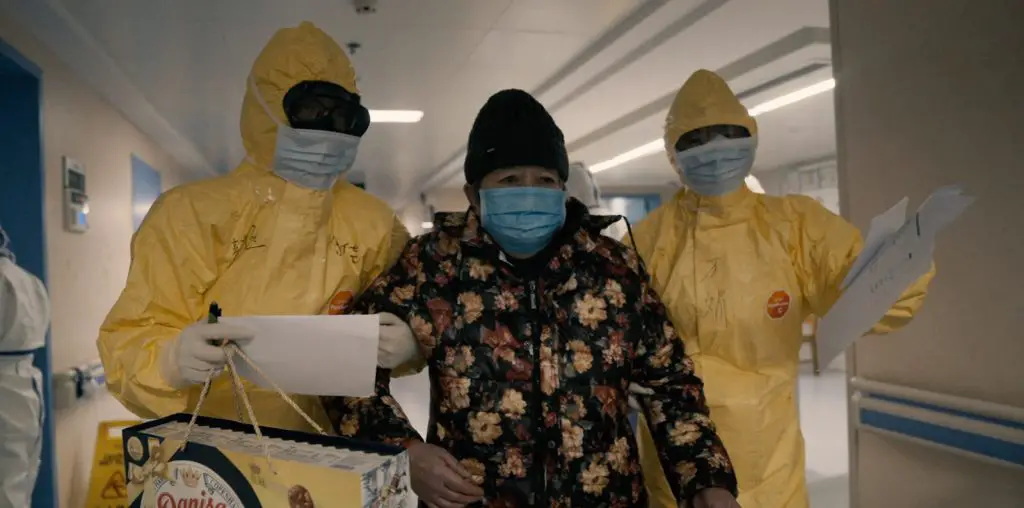
The fine documentary “The Atomic Café” covers a brief, but potent history of America’s nuclear infancy. Recently, I watched the film—now celebrating its 20th anniversary on DVD–for the first time expecting a pure nostalgic laugher, but what I got instead in “Café” was more disturbing than goofy.
The chronology of “The Atomic Café” roughly spans 15 years, from 1945 (the Trinity Test and Hiroshima) to just short of 1960 (the peak of Cold War propaganda). Yet the incidents shown between these boundaries in “Café” hardly paints anyone in a flattering light, as burgeoning super-powers fought for identity in a post-war world, bucking the U.S. and Soviet Union from their positions as former WWII allies against Nazism into notorious Cold War foes.
For a while, I struggled to define this uneasy period in history with few words. Frankly, it didn’t go well. But thankfully, a newsreel comment from “Café” crystallized this brand-new Atomic Age perhaps far better with: “Never have so many known so little about something so important.”
It’s a near-perfect description of America’s fall out of the nuclear cradle.
Elsewhere, “The Atomic Café” covers America’s newfound bomb culture on two fronts: at home and abroad. The latter’s tone is far more serious, featuring images of human shadows scorched into concrete at Hiroshima, and examples of the U.S. Army’s cavalier attitude toward their creation. All hindsight aside, you’ll marvel at what they were thinking, be it by testing bombs dangerously near American G.I.’s, or arrogantly transplanting native Bikini islanders in order to irradiate their home for decades. The domestic side of Cold War hysteria reflected in “Café” is even more bewildering, featuring interviews with “ordinary” Americans who compare a nuclear holocaust to a tornado that rages for a bit and then quickly subsides. Most bizarre here is a California man who brags that after most his neighbors are dead from coming nuclear storm with the Soviets, that extra food will remain for prepared families like his own.
Fortunately, however, aside from this craziness “The Atomic Café” isn’t without moments of comic relief, including the Civil Defense classic short “Duck & Cover,” footage of a resourceful dad showing off his kid’s radiation suit, and anti-Red shorts depicting Small Town U.S.A. conquered by Stalinism a la “Invasion of The Body Snatchers.” We’re not sure whether to laugh or cry during these bizarre moments in “Cafe,” but their inclusion in the film takes an edge off its otherwise dark content.
Unlike many documentaries, the unnarrated “Atomic Café” does well at remaining neutral toward its subject matter. What is seen is factual, taken from period newsreels and other archives, and as viewers we must form our own opinions on the value of the material. Yet curiously, “Café’s” timeline stops just short of the Cuban Missile Crisis, an event many consider the most dangerous nuclear incident (so far) in all history. Perhaps this was a historical line the film’s producers were unwilling to cross. Who can say? But “The Atomic Café” does not suffer without the omission; it’s a strong-enough product to stand on it’s own merits.
